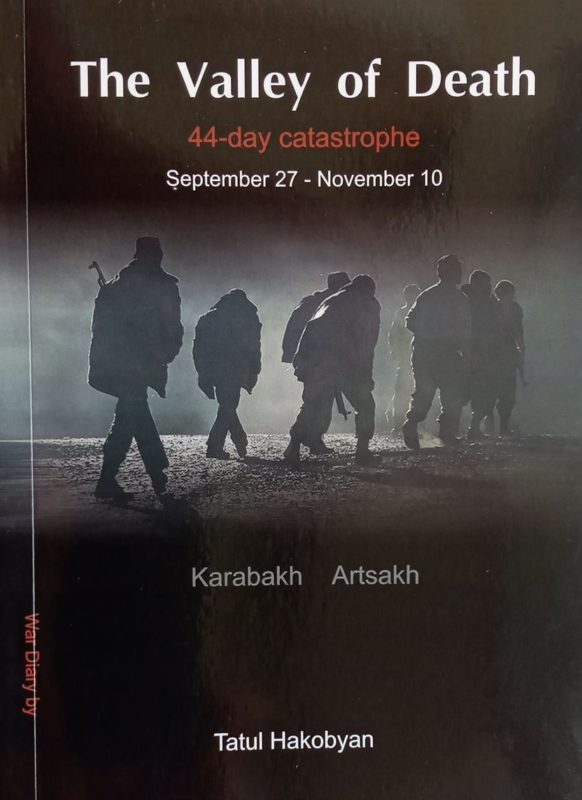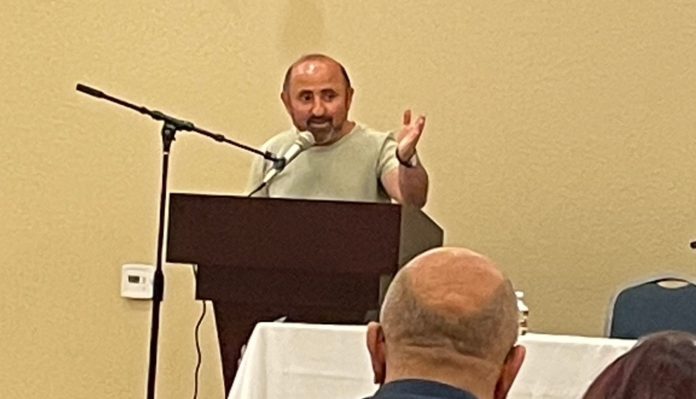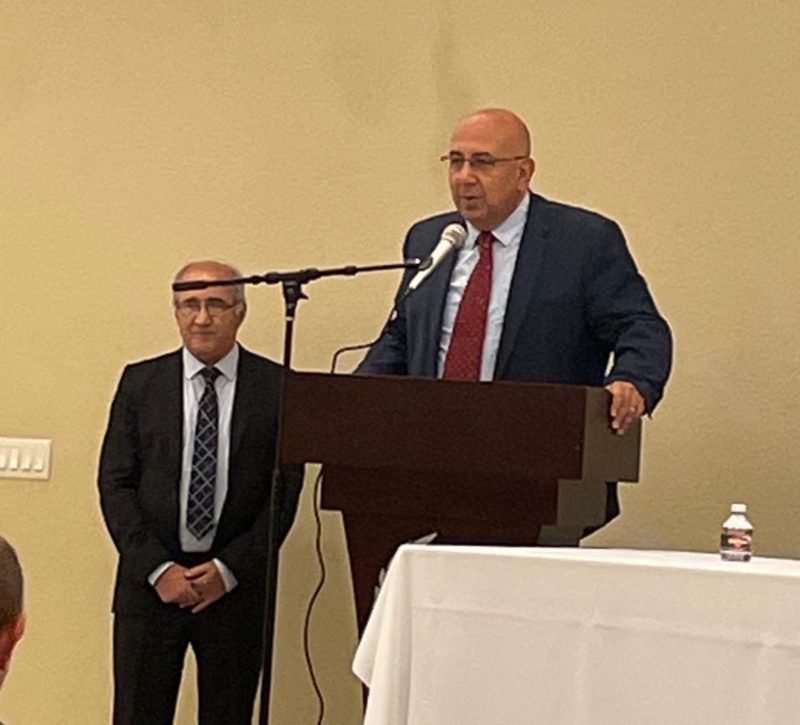ALTADENA, Calif. – “I am going to talk about views that are not very popular and many of you may not agree with me, but I am very much convinced in my views. Also, considering historical facts, I must repeat my views,” announced Tatul Hakobyan. A journalist, writer and the coordinator at the Ani Armenian Research Center, he spoke on June 11 at a presentation of the English translation by Arsen Kharatyan of his new book The Valley of Death, 44-Day Catastrophe. The event was organized by the Tekeyan Cultural Association (TCA), with the participation of the Armenian General Benevolent Union, Armenian Rights Council of America, Armenian Society of Los Angeles, Iraqi Armenian Family Association of Los Angeles, and the Organization of Istanbul Armenians, at the TCA Beshgeturian Center in Altadena.

Hakobyan presented his views to the gathered diaspora members regarding the terrible defeat of the 44 days of Artsakh war, exclaiming: “I can give you 100 reasons. But there is one main reason why we lost the second time in our history.” He gave a prior historical example first before stating his views, asserting, “The first time was in 1920 when our American friends, one of the main allies at that time, were telling us to find a common ground with our neighbors and not to rely on them [the allied powers]… Instead, we were determined that the future of Armenia will be decided in Sèvres or other places, and not in Armenia with its neighbors. We went to war and were terribly defeated, losing 30 square kilometers — the city of Ani, the entire Kars province and the biggest city of Armenia at that time, Alexandrapol.”
He then went on to declare: “I think that the main reason for the recent defeat is that we didn’t estimate our strengths correctly. As a political principle, we chose not realism, but the dream of having a big, bigger and biggest Armenia. We didn’t listen to friendly countries who were telling us to speak with Azerbaijan and to accept painful but dignified compromises.” Hakobyan expressed hopes that after this defeat Armenians won’t have another one in one hundred years and won’t rely on “wishful thinking” as a political principal in the future.
Hakobyan talked about the current situation in Artsakh, Armenia, and specifically in Syunik province, intentionally presenting them separately because of the unique situations for each, stating: “For the first time since 1991 we delegated the security of Artsakh to Russia. Will the Russian peacekeepers leave in five years, in ten years or will they stay? Or can our ally Russia one day make an agreement with Turkey and again sacrifice that Armenian territory? These are questions that we need to think about incessantly.”
Hakobyan emphasized the urgency of time, since no one knows what the political situation will look like in the world in four-and-one-half years. He was certain that Armenia needs to fix its armed forces and its economy and be ready even for painful developments. “We are our only ally with our realism,” he noted, and continued: “Right now, the status of the Republic of Artsakh has no significance for me. There are two important measures for Artsakh right now: security and the number of the Armenian population there.”











